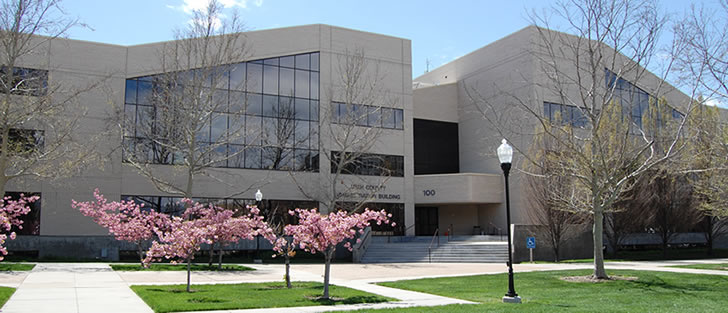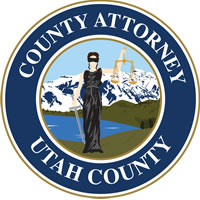
How do I request copies of government-held documents, such as my criminal history and the charges against me? |
|
| |
You must make an information request under the Utah Government Records Access and Management Act (GRAMA). See the tab on our Home page or click here: Requesting Records and Reports. |
I want to report a crime. Who should I contact? |
|
| |
You should contact your local police department. See the tab on our Home page or click here: Report a Crime. |
Who do I contact with questions about divorce or custody issues? |
|
| |
You must contact a private attorney to address divorce and custody questions. The Utah State Bar Association can provide you with referrals to local attorneys. Utah State Bar Association |
Where do I find out about employment opportunities with the County Attorney's Office? |
|
| |
See the tab on our Home page or click here: Employment Opportunities. |
I am a victim of a crime. How do I get my property back? |
|
| |
To get property back, contact the agency in possession of your property, typically the police. |
I am a victim of a crime. Where can I find resources related to restitution, testifying, and victim's rights? |
|
| |
Go to the Victim Services tab on our Home page or click here: Victim Services |
Where can I find information and forms related to protective orders? |
|
| |
Go to the Victim Services tab on our Home page or click here: Victim Services |
Where can I find other court forms? |
|
| |
The Utah State Courts webpage has a comprehensive collection of forms. Utah State Court Forms |
Where is the courthouse? |
|
| |
It depends on which courthouse you are looking for. Click on the Courthouse Maps option on the Home page of the county attorney's website for address information, maps and directions. Courthouse Maps |
What does the Utah County Attorney's Office do? |
|
| |
See the tab on our Home page: What We Do. |
How are the courts structured? |
|
| |
The Utah State Courts page has a detailed explanation of the structure of the Court System. |
How can I get my record expunged? |
|
| |
Expungments are handled through the Utah Bureau of Criminal Investigation and the courts. For an explanation of the process as well as the necessary forms, go to the Utah Courts website. Expunging a Record |
Who do I contact regarding any personal or private questions? |
|
| |
A private attorney should be contacted with any personal and/or private questions. For assistance, contact Utah Legal Services at: 1-800-662-4245 or visit www.andjusticeforall.org/uls/index.html for more information. |
What services does the County Attorney provide to someone to whom child support is owed or to someone who is entitled to a reimbursement of child support? |
|
| |
Pursuant to Utah Code Section 78B-12-114, the County
Attorney's Office will provide very limited assistance to a child support obligee as defined in Section 78B-12-102. Our assistance includes only the
following:
|
| |
The County Attorney's Office does not have the resources to provide legal representation to a child
support obligee.
|
